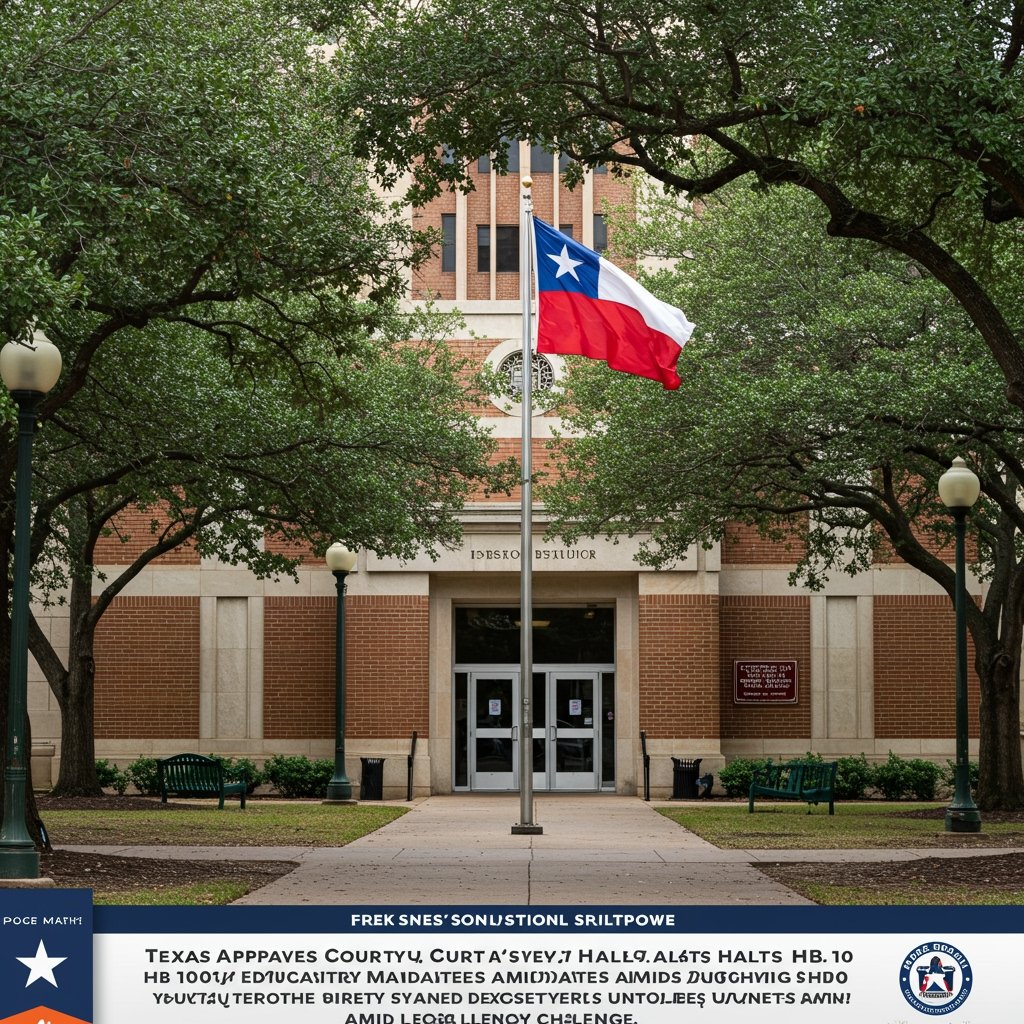Texas Appeals Court Blocks Implementation of Key Provisions in House Bill 100
Austin, TX – In a significant legal development impacting public education across Texas, the state’s Third District Court of Appeals has issued a temporary injunction effectively blocking the implementation of several key, and often controversial, provisions of House Bill 100 (HB 100). The legislation, passed by the Texas Legislature, aimed to introduce a standardized curriculum framework and regulations concerning instructional materials statewide. The court’s ruling represents a temporary victory for a broad coalition of plaintiffs who argued that the bill overstepped the state’s constitutional authority and infringed upon the principle of local control historically vested in Texas school districts.
The injunction was granted in response to a lawsuit filed by a diverse group comprising over 30 school districts from various parts of the state and a collection of influential parent advocacy groups. These plaintiffs contended that specific elements of HB 100 imposed rigid state mandates that undermined the ability of local educational agencies and communities to make decisions best suited for their students and contexts. Their legal challenge centers on the assertion that the Texas Constitution grants significant autonomy to local school boards in matters of curriculum and school operations, which they argue HB 100 unlawfully curtailed.
Among the specific sections of the bill targeted by the lawsuit and subsequently halted by the court’s order are those related to mandating certain historical interpretations within the curriculum and measures aimed at restricting access to specific library materials deemed inappropriate by state standards rather than local discretion. Critics of these provisions argued they risked presenting a skewed view of history and could lead to censorship, limiting students’ exposure to diverse perspectives and resources. The temporary injunction means that, pending further legal review and resolution of the case, Texas school districts and their libraries are not currently required to comply with these particular state-level directives.
The court’s decision to issue a temporary injunction indicates that the judges found sufficient preliminary merit in the plaintiffs’ arguments regarding the potential unconstitutionality or overreach of the challenged provisions. A temporary injunction is not a final ruling on the merits of the case but is a legal tool used to preserve the status quo or prevent potential irreparable harm while the litigation proceeds. In this instance, the court seemingly agreed that allowing the contested parts of HB 100 to take effect while their legality is still being debated could cause disruption or infringement upon rights that warrant an immediate, albeit temporary, pause.
The statewide nature of the injunction ensures that no school district in Texas is currently bound by the specific historical curriculum mandates or the restrictions on library materials outlined in the blocked sections of HB 100. This provides immediate relief to the plaintiff districts and others across the state who were grappling with how to implement or challenge these requirements.
Following the announcement of the Third District Court of Appeals’ decision, the office of Texas Attorney General Ken Paxton issued a swift and resolute response. The Attorney General’s office stated unequivocally that it would immediately appeal the decision to the State Supreme Court. This move signals the state’s determination to defend the legality of HB 100 and seek a rapid reversal of the appeals court’s ruling from Texas’s highest civil court. The Attorney General’s statement reiterated the state’s position, asserting firmly that the legislation is constitutional and within the purview of the state government’s authority to regulate public education.
The decision to bypass intermediate appellate steps and go directly to the State Supreme Court underscores the high stakes involved and the state’s desire for a definitive and potentially faster resolution. An appeal to the State Supreme Court opens a new phase in the legal battle. The Supreme Court could choose to uphold the temporary injunction, modify it, or dissolve it entirely, allowing the blocked provisions of HB 100 to go into effect while the underlying lawsuit continues or even deciding aspects of the case’s merits.
The legal challenge against HB 100 highlights the ongoing tension in Texas education governance between state-level policy goals and the tradition of local control. Advocates for local control argue that decisions about what is taught and what resources are available should be made by those closest to the students – parents, educators, and locally elected school boards. Proponents of state standardization, conversely, argue that it ensures consistency, equity, and adherence to statewide educational standards and values.
The temporary injunction by the Third District Court of Appeals marks a significant hurdle for the full implementation of HB 100 as originally intended. While the legal process unfolds, the focus shifts to the State Supreme Court, where the next critical decision regarding the fate of these controversial educational mandates will be made. The outcome of this appeal will have profound implications for the balance of power in Texas education, determining the extent to which the state can dictate specific curriculum content and regulate library collections in public schools moving forward. The legal battle is far from over, and the education community across Texas watches closely for the next ruling from the state’s highest court.






